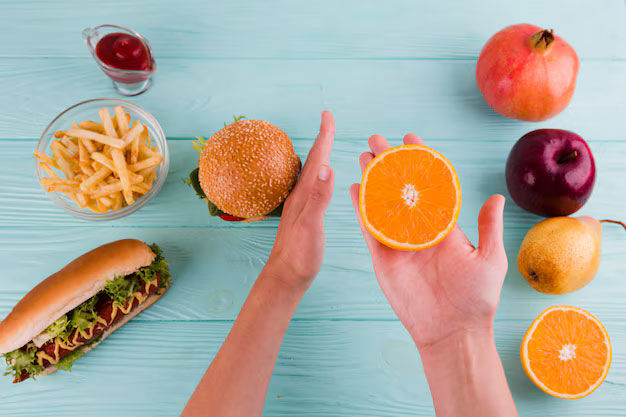The Role of Hydration in Digestive Health: Sip Your Way to a Happier Gut
Hey there! Let’s talk about something that seems so simple but is often overlooked—hydration. You’ve probably heard how important it is to drink enough water, but do you know what it really does for your digestive health?
Let’s dive in (pun intended!) and see why drinking water could be one of the easiest ways to support your gut, and what happens when you’re not getting enough.
Water: The Unsung Hero of Digestion
Imagine your digestive system is like a conveyor belt. Water is the grease that keeps everything moving smoothly along the line. Without enough of it, things start to get… stuck. Yes, I’m talking about constipation, bloating, and all those unpleasant feelings that come with a sluggish digestive system.
So, what exactly does water do for digestion?
- Helps Break Down Food: Water helps break down the food you eat so your body can absorb the nutrients properly. Without enough hydration, your body struggles to break down food, and this can lead to poor nutrient absorption (and who wants to miss out on all those good vitamins and minerals?).
- Keeps Things Moving: One word—fiber. We all know fiber is great for digestion, but did you know fiber needs water to do its job? Fiber acts like a sponge, soaking up water and adding bulk to your stool, helping it move smoothly through your intestines. Without water, fiber can actually work against you, making things harder (literally).
- Protects Your Gut Lining: Water is essential for maintaining the mucus lining in your gut, which acts as a protective barrier. This lining is crucial for keeping harmful bacteria and other irritants from causing inflammation. Stay hydrated, and you’re giving your gut an extra layer of defense!
Signs You Might Be Dehydrated
You might think you’re getting enough water, but are you? If you’re feeling tired, light-headed, or even irritable, dehydration could be creeping up on you. More directly related to your gut, dehydration can cause symptoms like constipation or dry stools—definitely not fun.
Here are some other signs to watch out for:
- Dark urine: Your pee should be light yellow. Anything darker is a red flag.
- Dry mouth or skin: Your body’s way of saying it needs some liquid love.
- Feeling hungry: Sometimes what we interpret as hunger is actually thirst!
How Much Water Do You Really Need?
We’ve all heard the “8 glasses a day” rule, but the truth is, your hydration needs depend on your body, your activity level, and even the climate you’re in. A good general rule? Aim for half your body weight in ounces. So, if you weigh 150 pounds, aim for about 75 ounces of water daily. But listen to your body—if you’re thirsty, drink!
Tips for Staying Hydrated
Okay, I know—you’re busy, and sometimes water is the last thing on your mind. But here are some easy ways to keep yourself sipping throughout the day:
- Start Your Day Right: Drink a big glass of water first thing in the morning. It kickstarts your metabolism and helps flush out toxins.
- Flavor It Up: If plain water isn’t your thing, try adding fresh fruit, cucumber, or a splash of lemon. It’ll taste like a treat, not a chore.
- Carry a Water Bottle: Keep a reusable bottle with you at all times. If it’s there, you’re more likely to drink from it.
- Eat Water-Rich Foods: Yep, you can get some of your water from food! Foods like cucumbers, watermelon, and leafy greens have high water content and are great for hydration.
When to Sip
You’ve probably heard that you shouldn’t drink too much water right before or during meals because it can dilute your digestive juices. While that’s partially true, it’s more about balance. Small sips of water during your meal can actually help digestion. The key is not to chug a huge glass right as you sit down to eat. Instead, aim for steady hydration throughout the day.
Bottom Line: Drink Up for a Happy Gut
Water is one of the simplest and most effective ways to keep your digestive system running smoothly. It helps break down food, supports your gut lining, and works hand in hand with fiber to prevent constipation. Plus, staying hydrated just makes you feel better overall!
So next time you feel a little off or your digestion is sluggish, ask yourself—have you had enough water today?
Now, grab a glass and sip your way to better digestive health. Your gut will thank you!




